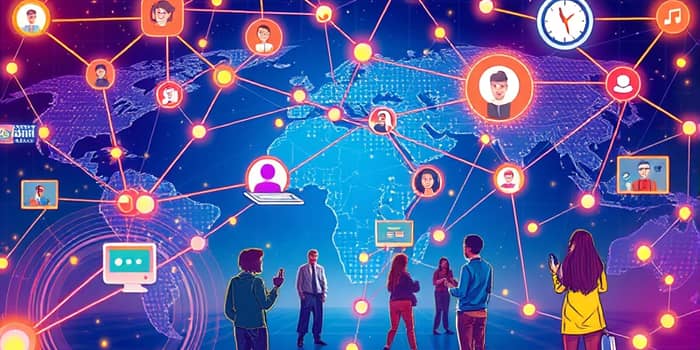In today’s interconnected world, customers expect instant answers regardless of time or location. By 2025, more than 44% of companies view customer experience as their most significant competitive advantage. As global markets converge, brands that hesitate to provide 24/7 customer support availability risk losing loyalty and revenue. This article dives deep into how leveraging tools with built-in round-the-clock support not only resolves issues promptly, but also drives lasting growth and customer delight.
Imagine a traveler stranded at an airport after a technical glitch in their booking app. At 2 AM, they need guidance, reassurance, and a solution. A responsive chatbot can immediately rebook a ticket and send boarding instructions, transforming stress into relief. Such moments illustrate the true power of continuous support—where empathy meets efficiency.
Changing Customer Expectations
As digital natives become the majority of consumers, the demand for immediacy has never been higher. Statistics show that 81% of customers attempt self-service before reaching out to a live agent. They expect knowledge bases, chatbots, and virtual assistants to deliver accurate solutions on demand. If a brand fails to meet these expectations, customers quickly move on to competitors who offer swift responses and shorter wait times.
Companies must recognize that modern consumers value both speed and convenience. Brands that invest in robust support infrastructures foster deeper connections and build trust. Every moment of delay becomes a risk of churn. By anticipating needs and offering round-the-clock assistance, organizations demonstrate a commitment to putting customers first, ushering in a new standard for exceptional service.
The Business Impact of 24/7 Support
Beyond the moral imperative of caring for your customers, continuous support delivers measurable business value. Research indicates that up to $75 billion in the US is lost annually due to poor customer service. On the flip side, nearly 80% of global consumers cite quality support as a primary reason for brand loyalty. By ensuring help is always accessible, companies can unlock:
- Immediate issue resolution in the first interaction
- Reduced response delays and improved throughput
- Stronger brand differentiation in competitive markets
- Operational cost savings through AI-driven automation
These benefits collectively enhance customer satisfaction, foster retention, and boost lifetime value. Organizations that fail to adapt risk stagnating while competitors achieve international expansion and heightened loyalty.
Technology Driving Next-Gen Support
The foundation of uninterrupted assistance lies in advanced technologies that automate routine tasks and empower customers to help themselves. By 2025, it is predicted that 85% of customer interactions will be managed without human intervention. Key innovations include:
- AI-powered chatbots and virtual assistants for immediate replies
- Self-service portals and well-structured knowledge bases
- Personalized interactions based on customer profiles
- Omnichannel integration across chat, email, phone, and social
With self-service portals, 69% of consumers find solutions without engaging a human agent. Meanwhile, AI-driven systems can filter and escalate complex issues seamlessly. This cost-efficient automated support workflows approach reduces workload on human agents, allowing them to focus on more nuanced customer needs.
Comparing Traditional Tools vs 24/7 Built-In Support
To appreciate the transformative potential of modern customer support platforms, consider this comparison:
This table highlights how a unified, seamless experience across channels can significantly elevate customer perception and lower operational overhead.
Avoiding Pitfalls and Measuring Success
Implementing 24/7 support tools is not without challenges. Over-reliance on automation can lead to impersonal interactions, while ignoring human training can erode trust. To strike the right balance and ensure continuous improvement, organizations should:
- Invest in empathy and communication skills for live agents
- Regularly review metrics such as first-contact resolution rates
- Gather feedback through CSAT surveys and user testing
- Iterate workflows based on real-world performance data
By combining technology with human insight, businesses create a support ecosystem that is both efficient and emotionally intelligent, aligning with evolving customer expectations.
Choosing & Implementing the Right Solution
Selecting the ideal platform requires balancing technical capabilities with strategic alignment. Consider seamless integration with existing CRMs, data security, and the ability to scale during peak demand. A phased implementation—starting with high-impact channels and expanding organically—often yields the best results.
Organizations like DevRev and AmplifAI have successfully deployed these tools, reporting personalized experiences based on customer data and remarkable improvements in customer loyalty rates. They demonstrate that a strategic combination of AI, self-service portals, and human oversight empowers brands to thrive.
Now is the time to embrace self-service portals and knowledge bases that anticipate customer needs and ensure your support operations never sleep. By doing so, you position your brand as a pioneer in customer experience, ready to serve and delight every customer—anytime, anywhere.
Embark on this transformative journey today and watch as your customer satisfaction, loyalty, and revenue soar. The future belongs to those who make support an unwavering promise rather than a mere option.
References
- https://www.amplifai.com/blog/customer-service-statistics
- https://document360.com/blog/customer-service-support-tools/
- https://www.zendesk.com/blog/customer-service-statistics/
- https://www.desk365.io/blog/customer-service-statistics/
- https://devrev.ai/blog/24-7-customer-support
- https://www.hubspot.com/knowledge-base
- https://hiverhq.com/blog/customer-service-statistics
- https://vwo.com/ab-testing/










